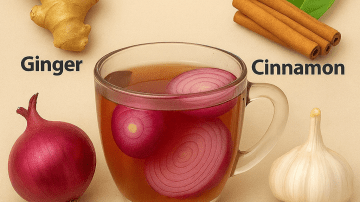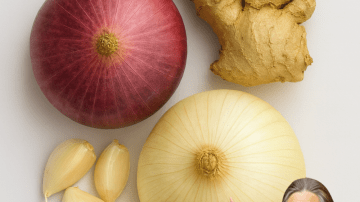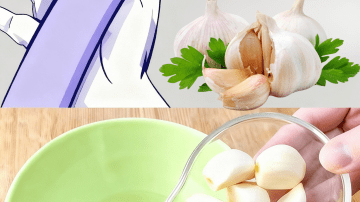Stop Scrolling. Look Closer. In an age defined by fleeting digital moments, what if the key to enduring wellness—a silent cough and a peaceful gut—was hiding in plain sight, cherished by ancient cultures yet largely forgotten by modern medicine?
Forget the synthetic remedies that offer temporary fixes. We’re inviting you on a profound journey into the world of botanical alchemy, focusing on a seed so simple, yet so potent, it’s rumored to be Nature’s own ‘Lung Whisperer’ and ‘Gut Alchemist.’ This is not mere folklore; this is a deep dive into the compelling science and historical tradition of a powerhouse botanical—a spice cabinet staple whose true medicinal value is often overlooked. Prepare to have your understanding of natural healing fundamentally shifted.
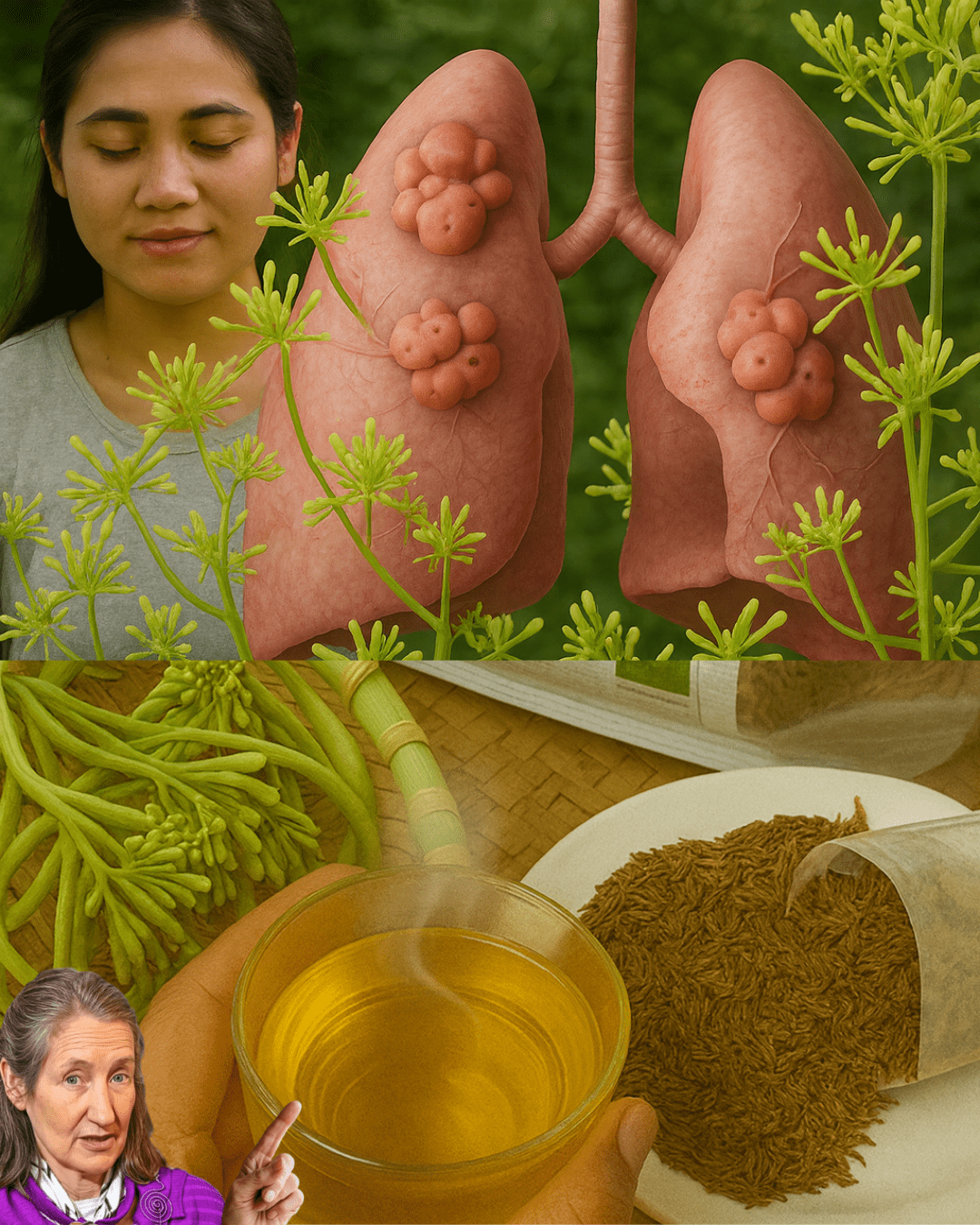
🔑 The Botanical Enigma: Identifying Nature’s True Heroes
The visual evidence is compelling. Before us lies a tableau of traditional remedies: a warm, amber infusion, rich in promise; a mound of earth-toned, crescent-shaped seeds; and the striking visual juxtaposition of the healthy human lung, juxtaposed against a mysterious, perhaps compromised, state. The surrounding vibrant, feathery fronds and seeds point overwhelmingly to a specific plant family: the Apiaceae, home to Fennel (Foeniculum vulgare) or Cumin/Caraway (Cuminum cyminum/Carum carvi).
For the purpose of this exploration, we will focus on the most commonly depicted and widely researched candidate in traditional respiratory and digestive care: Fennel Seed, often mistaken for its closely related cousins. Its history is a testament to its efficacy, spanning thousands of years from the shores of the Mediterranean to the bustling spice markets of the Far East.
🌬️ Decoding the Lung Whisperer: Fennel’s Respiratory Revelation
Why would ancient healers immediately turn to this particular seed for pulmonary complaints? The answer lies in its unique, concentrated biochemical profile.
🔬 The Power of Anethole and Fencone
Fennel’s distinctive, sweet-yet-pungent aroma is primarily due to its volatile oil composition, dominated by Anethole and Fencone. These compounds are not just aromatic; they are potent bioactive molecules with profound effects on the smooth muscles of the human body.
- Antispasmodic Action: A primary mechanism of fennel in cough suppression is its antispasmodic property. Coughs, particularly dry, irritating ones, are often triggered by spasms in the bronchial tubes. Anethole has been shown in pre-clinical studies to help relax these muscles, offering a natural “silencer” for the persistent, non-productive cough. It calms the hyper-reactive airway, offering relief without the drowsy side effects of many over-the-counter suppressants.
- Mucolytic and Expectorant Aid: While calming the spasmodic reflex, fennel simultaneously acts as a gentle expectorant. It helps to thin and loosen mucus (mucolytic action) in the respiratory tract. This dual action is critical: it eases the urge to cough while making the cough that does occur more productive, helping to clear the airway and supporting lung clearance.
- Anti-inflammatory Shield: Chronic coughs and respiratory distress are frequently rooted in inflammation. Constituents in fennel seed, particularly flavonoids and phenolic compounds, exhibit measurable anti-inflammatory activity. By modulating the inflammatory pathways, the seeds may help reduce the swelling and irritation within the bronchial lining, paving the way for long-term respiratory comfort.
🧘 The Gut Alchemist: Restoring Digestive Harmony
Beyond the lungs, the most famous domain of the fennel seed is the digestive tract. Traditional cultures universally hailed it as a post-meal digestif, and for good reason—its mechanisms tackle almost every facet of common gut distress.
💨 Eliminating the Bloat and Gas
One of fennel’s oldest applications is as a carminative—a substance that prevents the formation of gas or aids in its expulsion.
- Relaxation of the Sphincters: The volatile oils help relax the smooth muscles of the entire gastrointestinal tract, including the sphincters. This relaxation allows trapped gas to pass more easily, providing rapid relief from painful bloating and flatulence. For those suffering from Irritable Bowel Syndrome (IBS), this effect can be transformative, shifting the gut from a state of tension and discomfort to one of ease.
- Stimulating Digestive Juices: Fennel is a mild digestive stimulant. It encourages the secretion of gastric juices, bile, and pancreatic enzymes, essential components for the efficient breakdown and absorption of nutrients. Improved digestion means less undigested food reaching the colon to ferment—the primary source of uncomfortable gas and bloating.
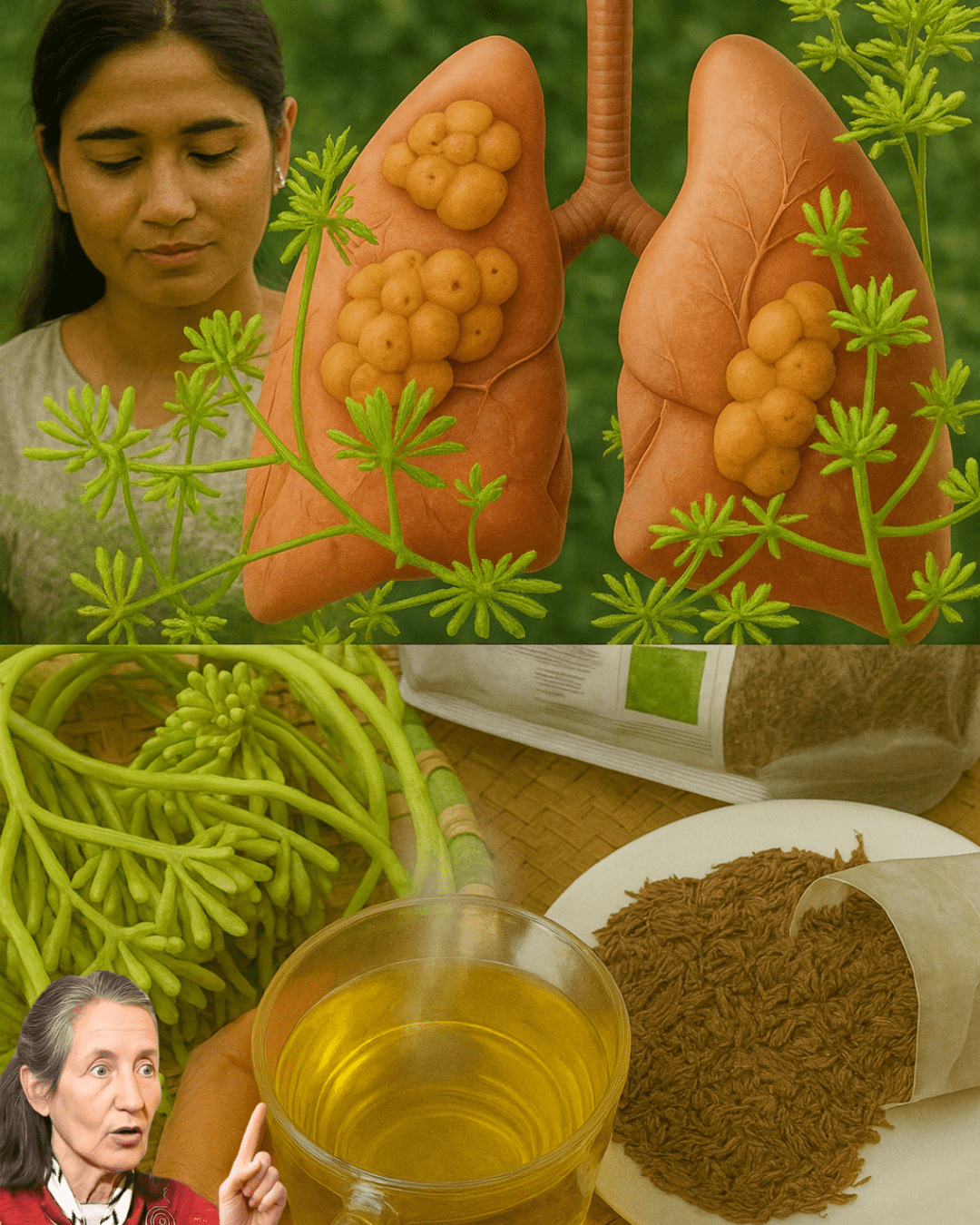
✨ Combating Gut Dysbiosis
The gut is a complex ecosystem, and imbalance (dysbiosis) is a root cause of many chronic health issues.
- Antimicrobial Balance: Research has demonstrated that fennel’s essential oils possess moderate antimicrobial and antifungal properties. This action helps in maintaining a healthy balance within the gut flora by gently inhibiting the overgrowth of pathogenic bacteria and yeasts (like Candida), creating a more favorable environment for beneficial bacteria to thrive.
- Motility Modulation: The very compounds that soothe the bronchi also harmonize the contractions (peristalsis) of the intestines. Whether the issue is sluggish bowels (constipation) or overactive ones, fennel helps guide the gut toward a state of regulated, comfortable movement.
🛡️ A Holistic Approach: Beyond the Symptom
The enduring success of remedies like this seed lies not in isolating a single symptom but in offering a holistic cascade of benefits.
| Benefit Category | Specific Action | Impact on Wellness |
| Respiratory | Antispasmodic, Expectorant, Anti-inflammatory | Quietens persistent coughs, promotes airway clearance, reduces bronchial irritation. |
| Digestive | Carminative, Antispasmodic, Pro-digestive | Relieves gas, bloating, and painful spasms; enhances nutrient assimilation. |
| Antioxidant | Free-Radical Scavenging (Polyphenols) | Protects cellular integrity, reduces oxidative stress, supports overall systemic health. |
| Metabolic | Moderate Diuretic and Galactagogue | Supports healthy fluid balance; traditionally used to promote milk flow in nursing mothers. |
🍵 Integrating the Seed: A Ritual of Wellness
To truly harness the ancient power of this seed, integration must become a daily ritual, not an occasional treatment. The most effective methods align with traditional practices:
- The Amber Infusion (Tea): This is the quintessential method. A teaspoon of lightly crushed seeds steeped in hot water for 10-15 minutes releases the volatile oils. Sipping this warm infusion after meals is the perfect carminative ritual, and drinking it warm helps to soothe the throat and bronchi directly.
- The Chewing Method: For immediate digestive relief, simply chewing half a teaspoon of the raw seeds immediately after a heavy meal can be remarkably effective. The mechanical action releases the oils directly, and the act of chewing stimulates saliva production, further aiding the digestive process.
- Syrup/Honey Elixir: The concept of combining botanicals with a soothing medium like honey remains powerful. Though the image suggests a water-based infusion, infusing a tablespoon of crushed seeds into a small jar of raw, local honey creates a potent syrup. A spoonful of this elixir is excellent for coating the throat and delivering the cough-silencing compounds directly to the irritated tissues. Note: Use caution when giving honey to children under one year old.
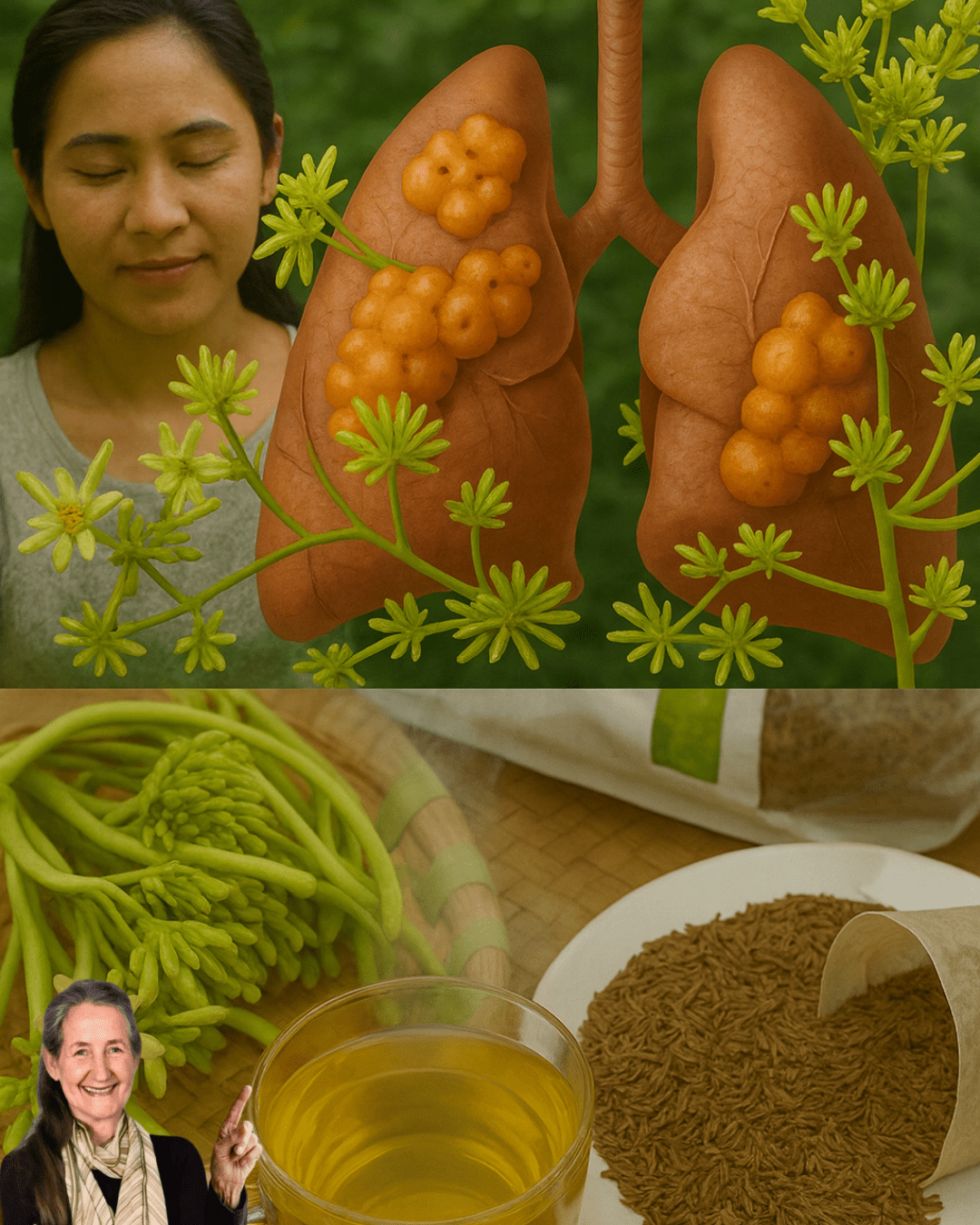
🛑 A Note on Modernity and Prudence
While natural remedies are profoundly effective, they must be approached with wisdom and respect.
- The Chronic Condition: The graphic imagery—particularly the compromised lung—serves as a critical reminder. While this seed can offer symptomatic relief for common ailments, it is not a cure for serious, chronic, or life-threatening diseases such as severe infections, asthma, or cancer. Any persistent, severe, or worsening respiratory or digestive symptom demands immediate evaluation by a qualified healthcare professional. Do not self-diagnose serious illness.
- Medication Interactions: As a potent botanical, fennel can interact with certain medications, particularly blood thinners or seizure medications. Always consult with your doctor or pharmacist before incorporating large, medicinal quantities of any herb if you are on prescribed medication.
🌟 The Takeaway: Your Journey to Self-Sovereignty
The journey into natural health is one of reclaiming self-sovereignty—understanding that powerful, accessible solutions are often found in nature’s pharmacy. The humble fennel seed, with its dual-action mastery over the cough reflex and the distressed gut, stands as a brilliant example.
By recognizing the wisdom of the ancients and applying modern scientific understanding to the plants around us, we can transition from a cycle of reactive treating to a life of proactive, sustained wellness. This seed is more than a spice; it is an invitation to listen to your body, heed the whisper of your gut, and breathe deeply with the quiet confidence of natural harmony.
Which traditional wellness secret are you ready to unlock next?
Would you like me to find evidence-based studies supporting the use of Fennel seeds for cough relief or digestive issues?



